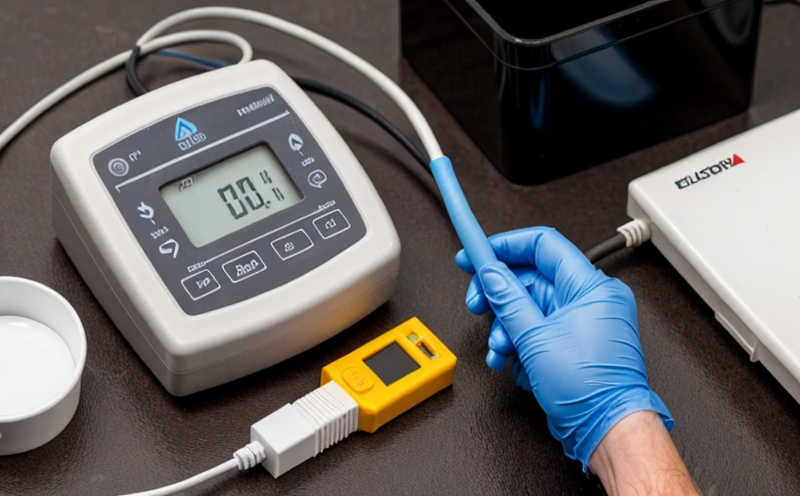JIS K7194 Electrochemical Permeability Testing of Plastics
The JIS K7194 standard provides a method to determine the electrochemical permeability of plastics, which is crucial for industries such as electronics, medical devices, and packaging. This test assesses how effectively a plastic film or sheet can resist penetration by ions, particularly in environments where ion migration could compromise product integrity.
The process involves subjecting a specimen under controlled conditions to an electrochemical potential difference across its thickness. The permeability is calculated based on the rate of ion transfer through the material. This test ensures that the plastic maintains its electrical insulation properties and does not allow unwanted ion passage, which can lead to corrosion or other performance issues.
Understanding this parameter helps in selecting appropriate materials for applications where electrochemical stability is critical. For instance, in medical devices, such as batteries or implantable electronics, ensuring minimal ion permeability prevents short-circuiting risks and enhances product longevity. In packaging, it ensures that the contents remain stable without leaching harmful ions into the food or other products.
The testing procedure typically begins with careful preparation of the specimen to ensure uniformity in thickness and surface finish. The specimen is then placed between two electrodes immersed in a solution containing specific ions. An alternating potential difference is applied across the material, causing ion migration through it. The rate at which ions pass through the material is measured using appropriate sensors.
The result of this test provides valuable insights into the electrochemical integrity of plastics used in various applications. This data aids manufacturers and quality managers in making informed decisions about material selection, process optimization, and product design. Compliance with JIS K7194 ensures that products meet stringent international standards for safety and reliability.
For industries like electronics and medical devices, where ion migration can lead to catastrophic failures or health risks, this test is indispensable. It helps in identifying potential weaknesses early in the development process, allowing for corrective actions before mass production.
The results of JIS K7194 electrochemical permeability testing are typically reported as a permeability coefficient, which quantifies how rapidly ions can pass through the material under specified conditions. This value is critical for understanding the material's performance in real-world scenarios and aids in setting appropriate design specifications.
Applied Standards
| Standard Number | Description |
|---|---|
| JIS K7194-1 | Electrochemical permeability test for plastic films and sheets - Part 1: General requirements |
| JIS K7194-2 | Electrochemical permeability test for plastic films and sheets - Part 2: Test methods |
The JIS standards outlined in this table provide comprehensive guidelines on the electrochemical permeability testing of plastics. These standards cover general requirements as well as specific test procedures, ensuring that the results are reliable and consistent across different laboratories.
Eurolab Advantages
At Eurolab, we pride ourselves on delivering accurate and reliable electrochemical permeability testing of plastics. Our state-of-the-art facilities are equipped with advanced instrumentation capable of replicating real-world environmental conditions accurately. This ensures that the results obtained from our tests closely reflect actual performance in end-use applications.
We employ highly skilled technicians who are well-versed in JIS K7194 standards, ensuring that every test conducted adheres strictly to these guidelines. Our quality assurance processes guarantee that all data collected is precise and can be trusted by stakeholders across various industries.
Our comprehensive reporting services provide detailed insights into the electrochemical properties of your materials, helping you make informed decisions about material selection and process improvements. By leveraging our expertise in JIS K7194 testing, you can ensure that your products meet the highest standards for safety and reliability.
International Acceptance and Recognition
- JIS K7194 is widely recognized within Japan as a standard for electrochemical permeability testing of plastics.
- The results from this test are accepted by regulatory bodies in various countries, including Japan, South Korea, Taiwan, and parts of Europe.
- Companies operating in these regions often require compliance with JIS K7194 to ensure market access and product acceptance.
The international acceptance of JIS K7194 reflects its relevance and reliability as a standard for electrochemical permeability testing. The test results are not only accepted domestically but also have global recognition, making them valuable for companies operating in multiple markets.





